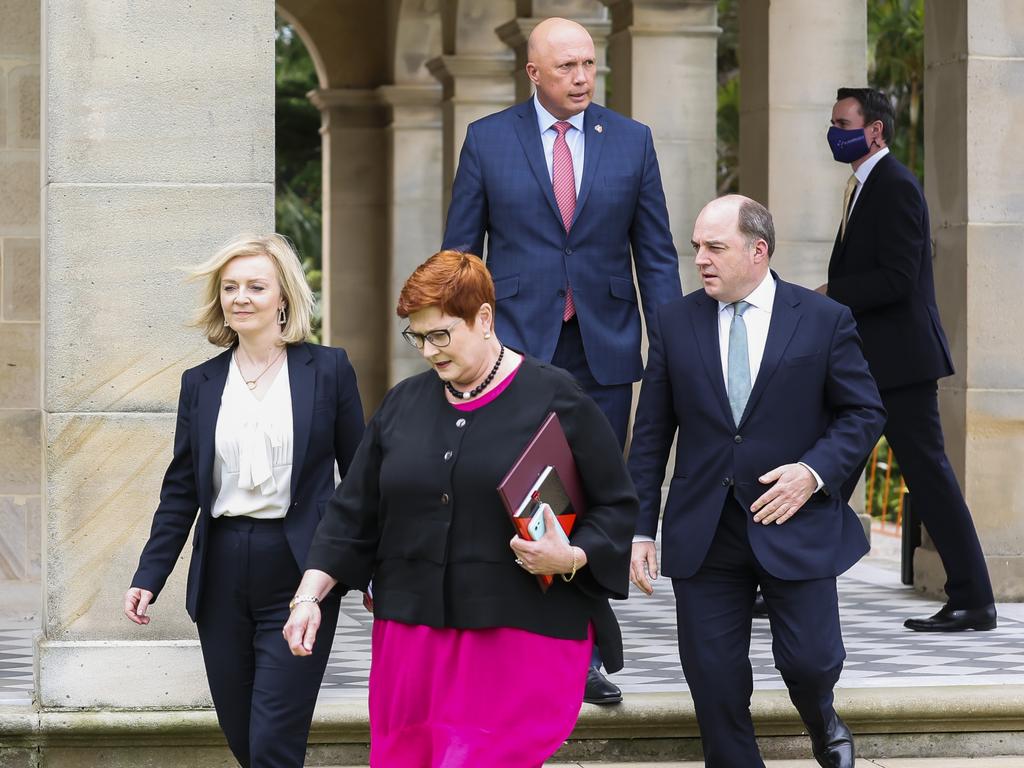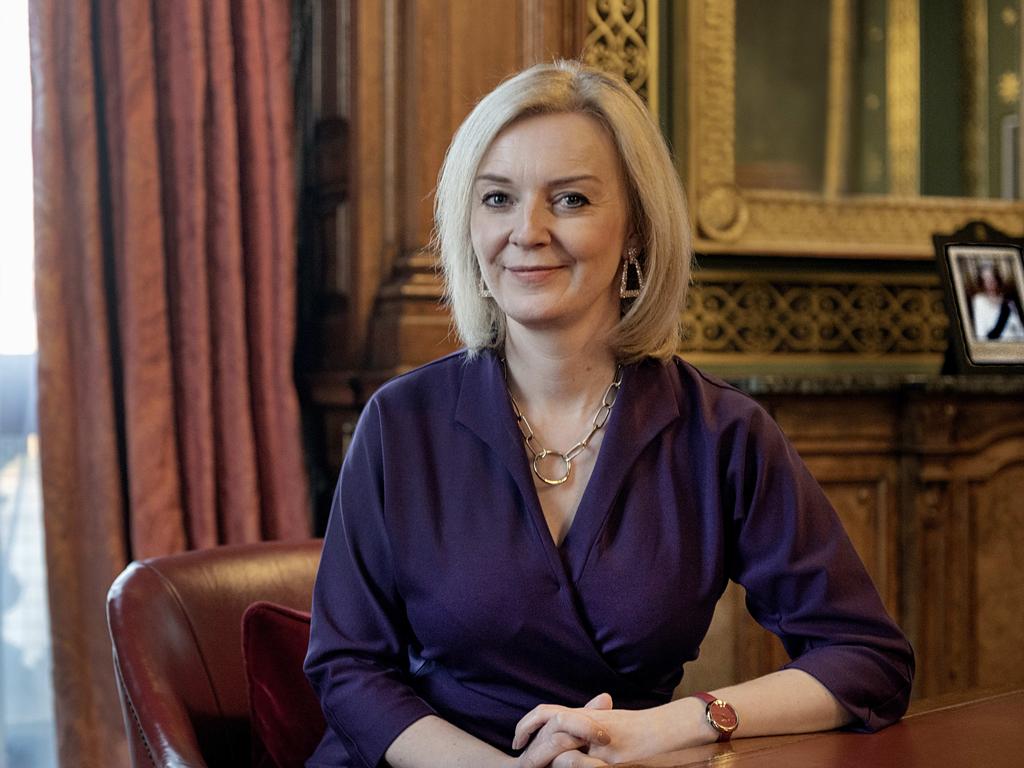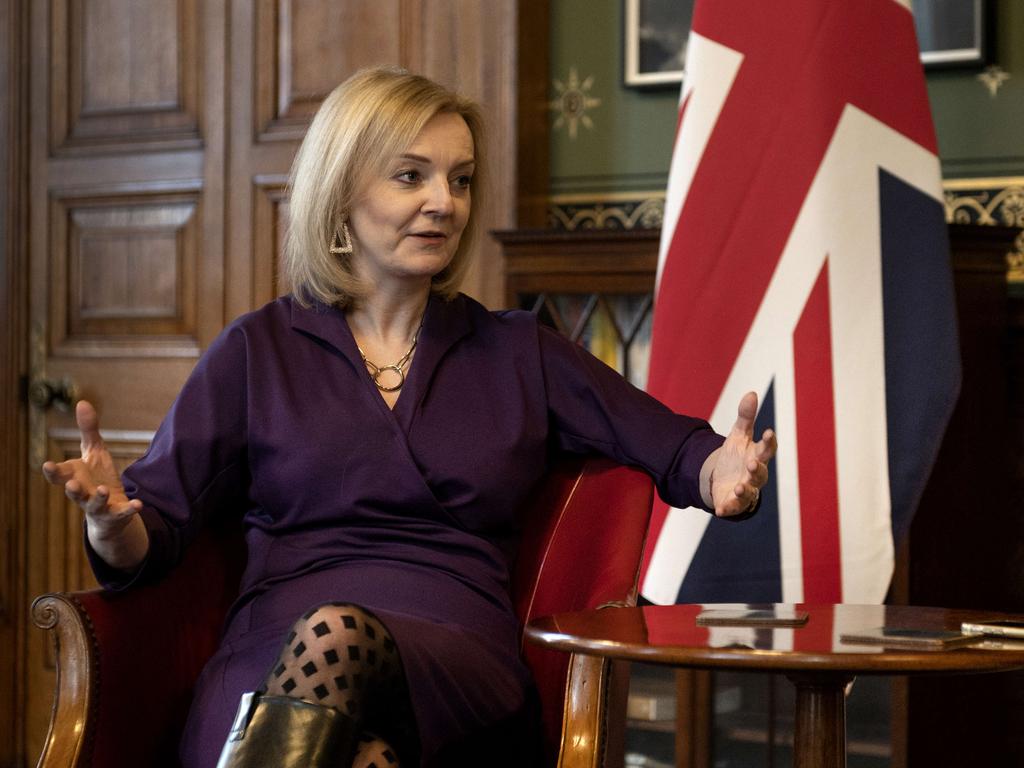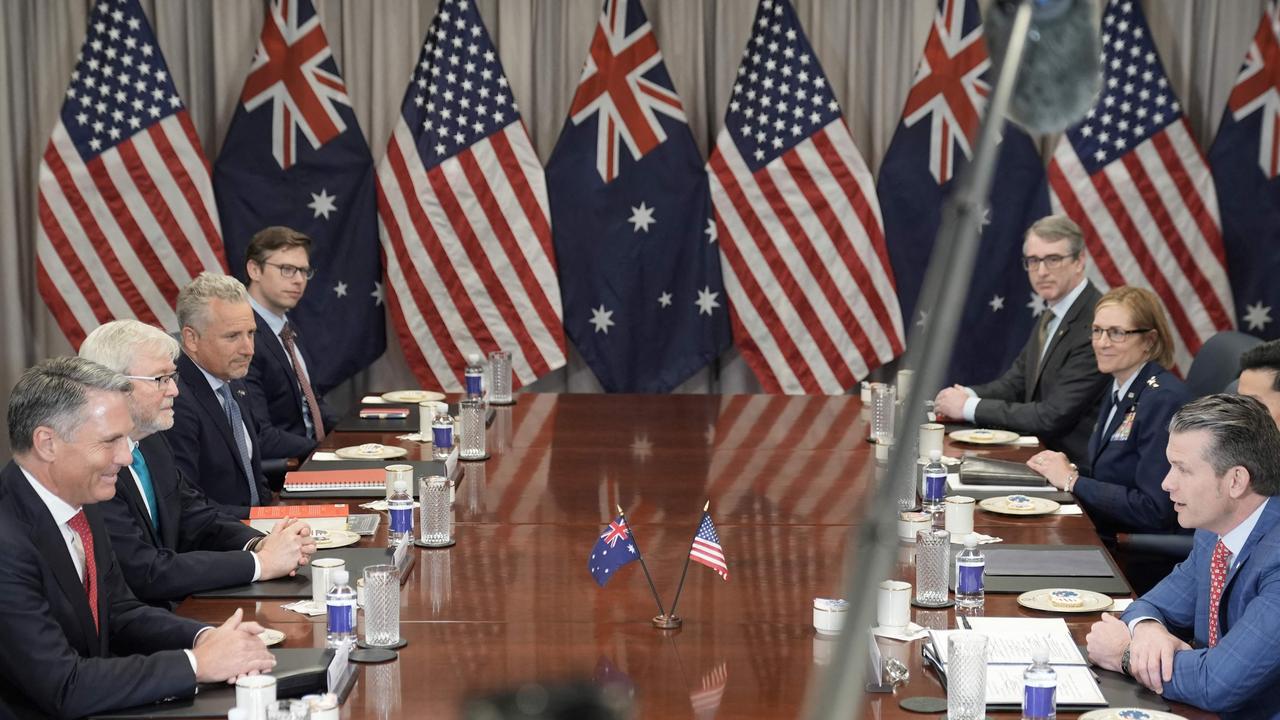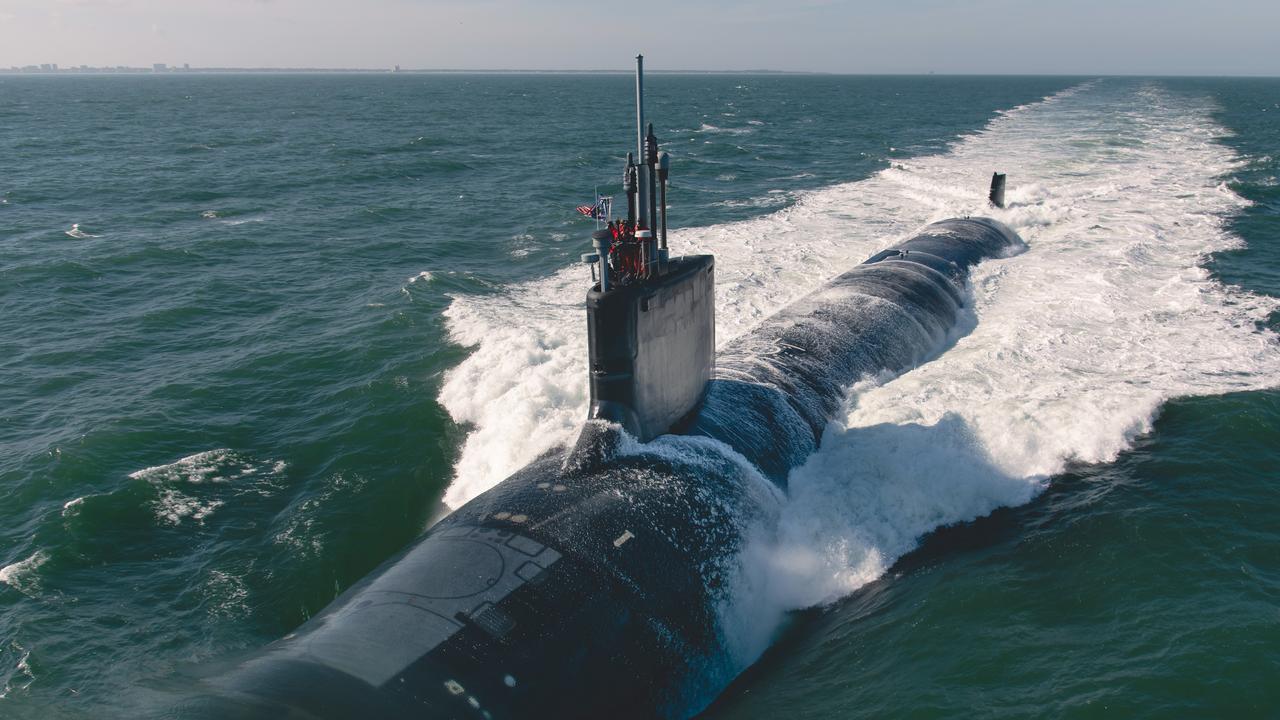AUKMIN talks: Papua New Guinea push as Britain flexes muscles
Scott Morrison commits $580m to upgrade critical ports in PNG, as Britain and Australia agree to deploy Royal Navy patrol vessels to Indo-Pacific.
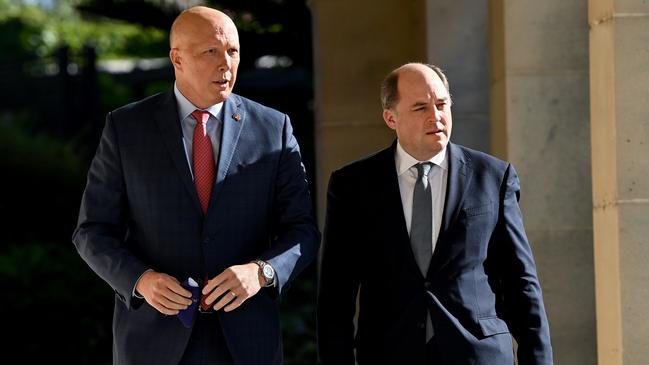
Scott Morrison has committed $580m to upgrade critical ports in Papua New Guinea, as British and Australian defence leaders agreed to deploy two Royal Navy offshore patrol vessels to the Indo-Pacific to counter Chinese aggression and enhance strategic responses in the event of a regional crisis.
In a series of high-level talks held on Friday, Mr Morrison met virtually with PNG Prime Minister James Marape to sign a financing agreement for the upgrade of maritime infrastructure, while simultaneous discussions were held between British and Australian officials to increase security co-operation in the Indo-Pacific.
Mr Morrison said the purpose of the additional funding would be to support the sovereignty and self-sufficiency of PNG, but also to strengthen economic ties and create conditions for longer-term jobs growth.
“Bigger ports means greater access to global trade opportunities,” Mr Morrison said. “A strong economy … can support the essential services that people in Papua New Guinea rely on – health services, education services, and the many other important services, transport and so on.”
In a press conference held earlier at Sydney’s Admiralty House, British Foreign Secretary Liz Truss said threats were rising across the world, including the use of misinformation, and that co-operation between the allies remained vital.
Ms Truss had flown to Australia with British Defence Secretary Ben Wallace for a meeting with Foreign Minister Marise Payne and Defence Minister Peter Dutton, the first such meeting of AUKMIN officials since 2018.
While discussions canvassed a slew of global concerns, one significant outcome included an agreement to deploy two British naval ships, HMS Spey and HMS Tamar, to the Indo-Pacific.
The ships would be deployed with Australian support to establish a “persistent Indo-Pacific presence”, according to a joint statement. The talks also included a reaffirming of the delivery of nuclear-powered submarines to Australia under the AUKUS pact with the UK and US.
Ms Truss told reporters that both countries were “completely united” in their response to apparent threats in the Indo-Pacific region, and elsewhere.
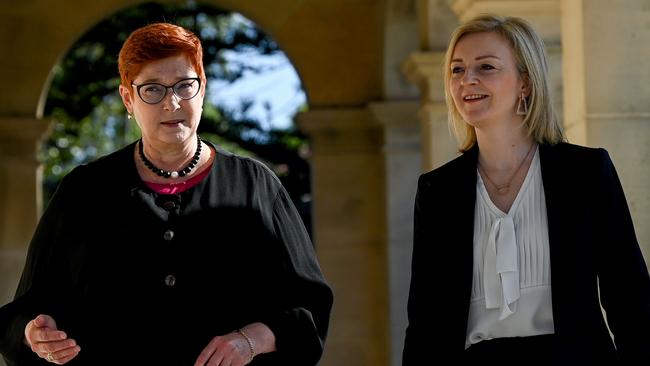
“Russia is threatening Ukraine. Iran is striving for a nuclear weapon, and China is using its economic muscle against Australia and other allies like Lithuania,” Ms Truss said. “We’re standing shoulder to shoulder in defence of freedom and democracy, and we’re determined to face down these growing threats.”
Mr Morrison, in a virtual address to the World Economic Forum in Davos on Friday night, said Australia had held firm to its values in the face of economic protectionism and coercive measures. “But it has not been without cost. I believe it has also come at a significant cost to the countries which implement such measures. It’s hard to see how anyone wins,’’ the Prime Minister said.
In the AUKMIN talks in Sydney, ministers were also said to have agreed to increased co-ordination and planning of military operations in the Indo-Pacific, as well as embedding a British liaison officer with Australia’s Headquarters Joint Operations Command.
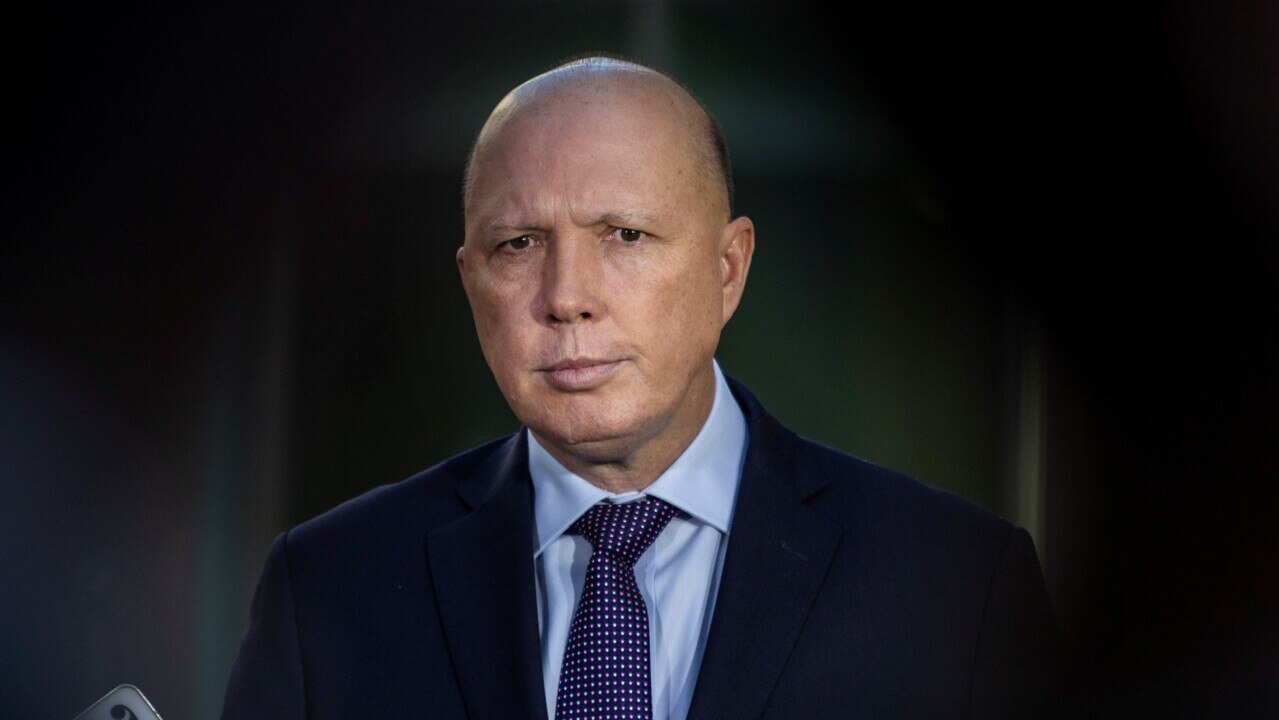
Mr Dutton said the talks did not canvas the permanent basing of UK defence force personnel or other assets in Australia, although he confirmed there would be a heightened number of military rotations and associated visits, and that this has been agreed to as part of the day’s discussions.
Citing “bullying” in the Indo-Pacific region, without naming China or any other nation, Mr Dutton told reporters that the community could expect greater engagement with the UK through strengthened military ties.
“We will see greater rotations as we’ve already seen from the strike carrier group and the nuclear sub visit out of the UK,” Mr Dutton said. “More people understand what is happening in terms of the coercion and bullying taking place within the Indo-Pacific.”
This would include the UK but also the US and other European nations, Mr Dutton added, namely Germany, that have indicated “greater interest” in engaging with the region on security.
“There are many countries that have that interest in making sure they have a presence and they express their own view about freedom and the continuation of what we know in the Indo-Pacific at the moment,” he said.
But on the issue of basing UK defence personnel in Australia, Mr Dutton said there were no proposals thus far, although this could be discussed in the future.
“What you’ll see is a greater regularity in visits, in training, in people being embedded in both services and greater co-operation in exercises and visits by various platforms, not just limited to submarines,” he said.
Mr Wallace stressed that ongoing discussions with the US under the AUKUS deal remained at an early stage. “We’re going to lay foundations for training, we’ve got to lay foundations for working together,” he said.
“But in the meantime, Britain will certainly make sure that submarines, when we have availability or we wish to deploy in conjunction with Australia, we will do that.”
Other areas of focus during the talks included Russia’s military build-up on the border with Ukraine, and the malicious use of cyberspace by foreign agents.


